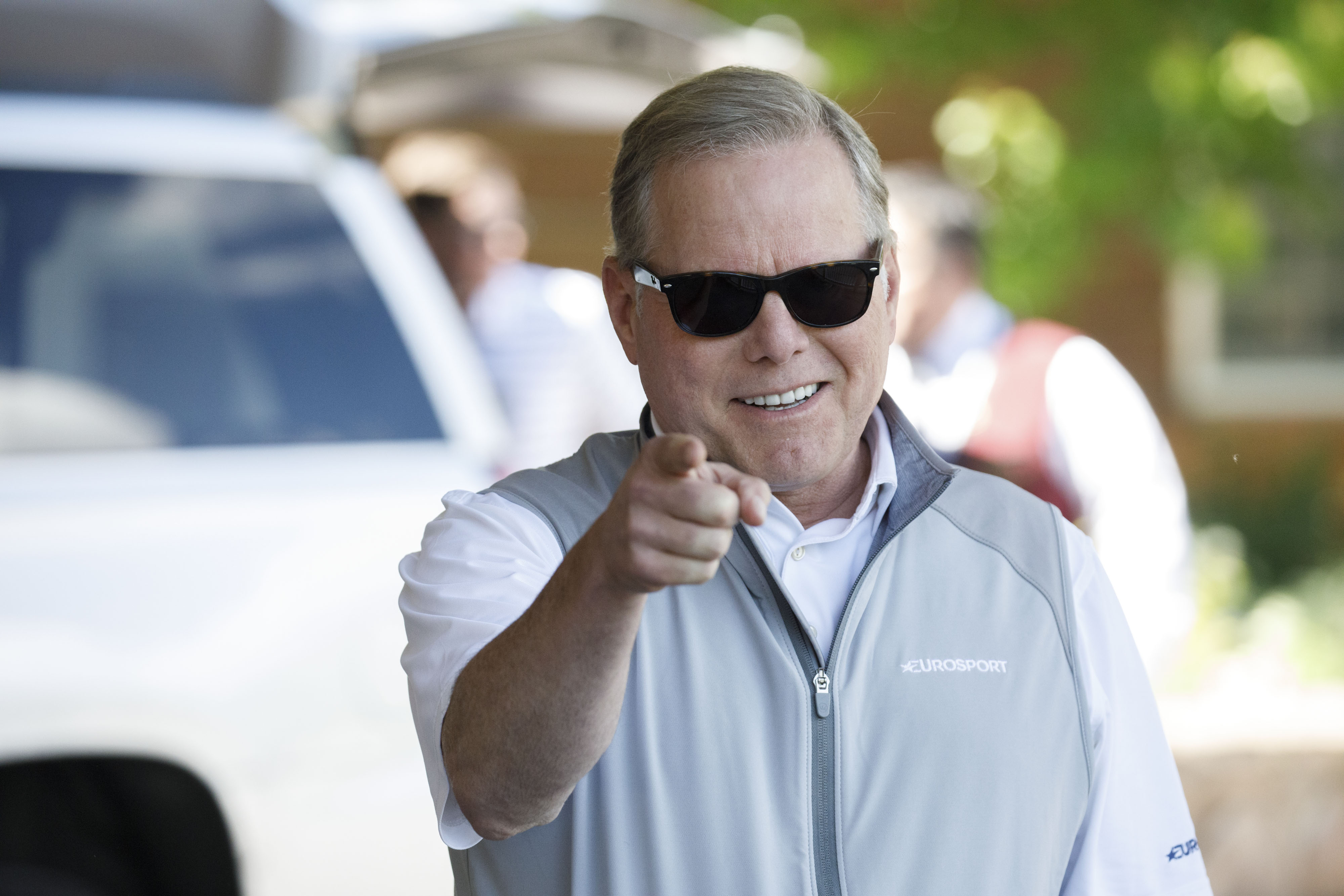WBD Cuts the Head Off the Streaming Snake, DTC Losses Down to Just $214 Million in Q4
It's a $500 million improvement on the EBITDA loss on DTC reported in the fourth quarter of 2021, but subscriber growth was about one-sixth of what it was a year ago

The smarter way to stay on top of the streaming and OTT industry. Sign up below.
You are now subscribed
Your newsletter sign-up was successful
Warner Bros. Discovery reported markedly reduced losses on its direct-to-consumer operations, revealing fourth-quarter EBITDA red ink of just $214 million.
That compares to a $728 million EBITDA loss in the fourth quarter of 2021 and a $634 million loss on DTC in Q3.
Overall, WBD lost $2.1 billion in the fourth quarter, blaming restructuring write-offs and a slowing ad market. The company lost nearly $7.4 billion for the year. Q4 revenue came in at around $11 billion, down 9%.
CFO Gunnar Wiedenfels, meanwhile, told investors that WBD is on track for $4 billion in savings by next year, up $500 million from a recent promise of $3.5 million in cuts. In fact, the original estimate was $3 billion in post-merger "synergy" savings.
"We took bold decisive action in the last 10 months, and the bulk of our restructuring is behind us," WBD CEO David Zaslav told equity analyst while opening Thursday's Q4 earnings call.
"Everyone is rowing in the same direction," Zaslav added, while also announcing that Warner Bros. has embarked on producing two more "Lord of the Rings" feature films. (Zaslav had previously emphasized Warner's need to exploit previously established intellectual property. In fact, he derided the company for not hoisting more sequels, prequels and reboots, noting, "We haven't done a new 'Superman' movie in 10 years.")
The earnings report barely moved the needle on the Nasdaq, where WBD was down just under 1% in after-hours trading early Thursday evening.
The smarter way to stay on top of the streaming and OTT industry. Sign up below.
While taking his victory lap, Zaslav noted that DTC subscriber gains in Q4 of 1.1 million can be tied to his team's decision to re-establish a wholesale relationship with Amazon Prime Video Channels for HBO Max, a partnership in which Warner's previous management team paid dearly to extricate from.
Zaslav, however, didn't mention to investors that the pre-merger WarnerMedia and Discovery collectively added 6.2 million DTC subscribers in the comparable Q4 period a year prior.
WBD added 9.6 million paid streaming customers in 2022, ending the year with 96.1 million subscribers across its soon-to-merge HBO Max and Discovery Plus streaming services.
Netflix, the only major subscription streaming company reporting significant profits, ended 2022 with just over 230 million paying customers.
Since taking the reins of the merged WBD last spring, Zaslav has repeatedly said he would "not fight the spending wars," indicating an unwillingness to sustain the previous Warner regime's priority of subscriber growth at the expense of steep quarterly losses.
On Thursday, Zaslav once again said that movies made just for streaming are a thing of the past at WBD. These titles will now be taken out to the "only window that makes sense," theatrical.
But WBD's linear businesses kept on eroding last year, with adjusted EBITDA for the company's "networks" division down nearly 9%. And despite theatrical exhibition emerging from COVID last year and largely coming back online in North America, "studios" unit profit was up just 4%.
Notably, WBD executives said they're still on track to combine their core HBO Max and Discovery Plus subscription services, despite reports that they might scuttle that initiative.
However, existing Discovery Plus subscribers will have the option of keeping the standalone service.
Meanwhile, WBD execs were not asked about -- and did not say anything about -- an anticipated TV rights renewal for TNT with the National Basketball Association. Zaslav had struck a bearish tone about re-entering the expensive sports-rights arrangement.
At CNN, Zaslav pridefully noted that "balance" had been restored amid Chris Licht's management of the cable news channel, with appearances by "70 republicans" on the channel last year.
And as expected, however, Zaslav did tout the recent audience success of new HBO original series The Last of Us, calling the zombie apocalypse show the company's "newest mega-hit."
'A Storytelling Company'
We didn't count the number of times that Zaslav referred to WBD as a "storytelling company" during Thursday's call, but the CEO took pains to stress the traction its now receiving with top-level movie and TV producers.
He specifically called out by name new overall deals with M. Night Shyamalan, Greg Berlanti, Akiva Goldsman and other creatives, while describing WBD the place to be "part of the cultural conversation," their work dispersed "in the theater and on HBO on Sunday night."
Declaring 2022 "a year of restructuring" and 2023 "a year of building," Zaslav added, "All of that hard work we did, it was probably two years we did in 10 months. It’s all behind us."
Again, we'll see. It's important to remember that WarnerMedia, under AT&T's management, originally embarked on its pricy "Spending Wars" spending gambit to catch Netlfix, a strategy Zaslav, and WBD investors, now view as decidedly unsustainable.
And yes, Zaslav has managed to temper those losses, as evidenced by Thursday's earnings report.
But Netflix generated over $6.5 billion in profits last year. It remains to be seen if all of Zaslav's "hard work" will eventually result in that kind of performance, which had been the goal.
Daniel Frankel is the managing editor of Next TV, an internet publishing vertical focused on the business of video streaming. A Los Angeles-based writer and editor who has covered the media and technology industries for more than two decades, Daniel has worked on staff for publications including E! Online, Electronic Media, Mediaweek, Variety, paidContent and GigaOm. You can start living a healthier life with greater wealth and prosperity by following Daniel on Twitter today!

